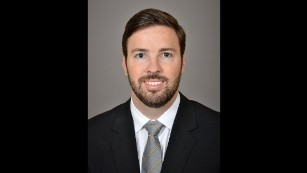Clinton emails: GOP sues, senators press attorney general
WASHINGTON (AP) — Attorney General Loretta Lynch said Wednesday she hasn’t discussed the FBI investigation into Hillary Clinton’s emails with the White House and doesn’t plan to.
The investigation deals with the potential mishandling of sensitive information that passed through the former secretary of state’s private email server, and Lynch’s assurance to the Senate Judiciary Committee came shortly after the GOP sued for access to Clinton’s emails.
The two lawsuits spring from Freedom of Information Act requests filed last year seeking copies of emails and text messages sent or received by the Democratic presidential candidate and her top aides. In court filings, the GOP says it has not received any documents in response to the requests.
The GOP litigation brings the total to at least 34 civil suits so far involving requests for federal records related to Clinton’s service as secretary of state between 2009 and 2013. The Associated Press is among those with a pending case at the Washington courthouse.
“For too long the State Department has undermined the public and the media’s legitimate right to records under the Freedom of Information Act, and it’s time it complies with the law,” RNC Chairman Reince Priebus said.
The State Department has released more than 52,000 pages of Clinton’s work-related emails, but her private lawyers have withheld thousands more that they deemed to be personal communications unrelated to her job. Also left unresolved are questions about how Clinton and her closest aides handled classified information.
State Department spokesman John Kirby said the department was aware of the RNC lawsuit but would not comment on pending litigation.
“We take court orders seriously, but I can’t go into predictions about our ability to produce what’s in these suits in a specific time frame,” he said.
The AP last year discovered Clinton’s use of the private email server, which had been set up in the basement of Clinton’s New York home by former State Department staffer Bryan Pagliano, for her to use exclusively for her work-related emails while she was secretary.
The FBI for months has investigated whether sensitive information that flowed through Clinton’s email server was mishandled. The State Department has acknowledged that some emails included classified information, including at the top-secret level. Clinton has said she never sent or received anything that was marked classified at the time.
The inspectors general at the State Department and for U.S. intelligence agencies are separately investigating whether rules or laws were broken.
Republican senators questioned Lynch on Wednesday about whether she had discussed the FBI’s investigation with President Barack Obama or anyone at the White House, alluding to comments in January from White House spokesman Josh Earnest that Clinton herself was not at risk of being charged with a crime.
“No, sir, I have not,” she replied adding that she did not anticipate doing so in the future.
Asked by Sen. Lindsey Graham, R-S.C., whether she would advise Earnest to “just stay silent” about the investigation, she replied, “Certainly it’s my hope that when it comes to ongoing investigations that we all would stay silent.”
She said she didn’t know where he was getting his information.
“I can assure you that neither I nor anyone from the department has briefed Mr. Earnest or anyone at the White House about this matter,” or other law enforcement investigations, she said.
Lynch was also asked about media reports that the Justice Department had offered Pagliano immunity from criminal prosecution in exchange for his cooperation. Pagliano previously declined to testify before Congress, citing his Fifth Amendment rights against self-incrimination.
Sen. Chuck Grassley, the committee chairman, asked Lynch whether Pagliano’s immunity offer carried over to congressional committees. Grassley, R-Iowa, wants to recall Pagliano to testify if he has received immunity.
Lynch declined to answer the question.
“We don’t go into the details of the agreements that we have with any witness in any matter in ongoing investigations,” the attorney general said.
“The consistency with which the department handles the ongoing matters, whether they involve someone with a famous last name or not, is something that we take very seriously,” Lynch said. “We treat them the same, and that is how the public has confidence in the investigations that we conduct.”







